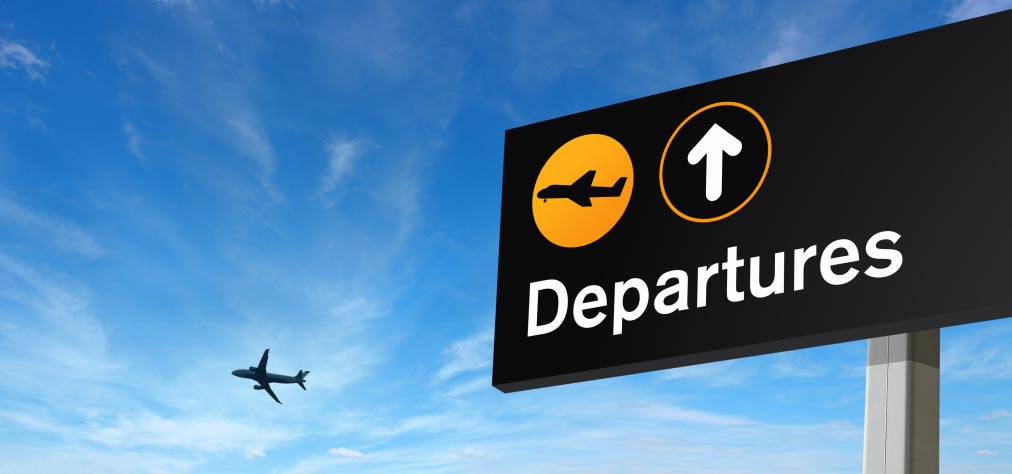With finals FINALLY over with and school wrapped up for summer, it’s easy to get distracted from the mundane tasks that are still between you and your study abroad trip. Here are 10 important things you can do to stay on track.
1. Talk to your academic advisor to ensure you will be getting credit for the classes you will be taking. If they don’t, be sure to find out how this can effect your graduation date and what you can do to get caught up (i.e. taking an online summer class to catch up).
2. Visit the financial aid office and fill out any paperwork necessary to have your funds applied to your program cost. Also, like I’ve said before, mark down the dates for when your aid money should hit your account so you aren’t taken off guard, or left penniless somewhere.
3. Make your travel arrangements once you know exactly when you are supposed to arrive at your host institution or home study. You will save money and peace of mind buying any tickets you need before you’re on the ground, even shuttle busses or train tickets. Ask your program provider if they offer airport pick up, too, to save you some hassle.
4. Get your original documents in order and make 2 sets of copies. Keep one set at home with your family, bring one along and keep a digital copy on your computer just in case. Also, my list may be incomplete, so be sure to double check with your home and host institutions.
• Passport (and copies of the picture/signature pages)
• Student visa
• Acceptance letters from host university AND program provider
• Medical/Immunization records
• Prescription list (including glasses/contacts)
• Proof of insurance (often times your school and/or program will require additional insurance, as well)
• Copies of program payment receipts
• Financial aid information
• Course selection forms
• Official transcripts
• Travel itinerary/reservations
• Credit cards (and copies of the front and back in case they need replacing)
• List of phone numbers and addresses of your financial aid advisor, study abroad/academic advisors, residence director, program provider, airlines, consulates/embassies, friends/family members, etc. (for post cards, souvenirs and emergencies)
5. See your doctor if you haven’t already had a study abroad physical as required by most universities and program providers. Discuss the legality of your prescription medications abroad, and get a supply long enough to last your trip. Don’t forget to ask if you need additional immunizations or preventative treatments (for malaria, etc.) before you travel.
6. Notify your bank that you will be spending time overseas. This will keep them from freezing your account due to suspected fraud when they see international transactions. Discuss the costs of exchange and any other fees associated with using your account abroad, as these fees can really stack up. To be on the safe side, pull out $100 or so in local currency, too, to hold you over until you can access an ATM machine.
7. Make a master calendar! I know, I’m obsessed, but, really, it is a great tool. Mark all of your travel dates and itineraries including flight/ticket numbers and estimated time of arrival. Also note orientation and placements test times, class times and travel plans. Keeping it online and updating it often can help keep your friends and parents in the know, as well.
8. Get your bearings early. Get a guidebook or do online research about your area of study, and their customs. Print a map, or download one to your phone, iPad or laptop and note the location of your classroom buildings, school offices, the local police department and hospital, the American embassy/consulate, public transportation, shopping etc.
9. Study up and take the time to freshen up your language skills by going over old assignments, listening to local music, watching foreign films sans subtitles and doing language activities online. Make a list of important phrases that you may need if you will be traveling through other countries, as well, such as on a layover, or on a weekend. If you are still not confident, invest in a translation app that doesn’t require Internet access, or get a handheld translator to bring along.
10. Relax! You are almost ready to embark on the trip of a lifetime! Though the process has been long and hard, the payoff will be well worth it. Give yourself a pat on the back and for making a meaningful investment in your future.
If you have any questions, or want to shout out where you’re studying abroad, leave a comment below.
Thanks again for reading, and good luck!
 “Self-proclaimed “Francophile” Jessica Longshore is a sophomore French major at Western Illinois University. On Campus, her involvement includes being a member of NSCS, a Centennial Honors College member, and Vice President of Western’s Ambassadors for Study Abroad (WASA). During her free time, she likes to cook, do her nails, and write. She is also looking forward to studying abroad in Cannes, France this coming fall, and blogging about her travels.”
“Self-proclaimed “Francophile” Jessica Longshore is a sophomore French major at Western Illinois University. On Campus, her involvement includes being a member of NSCS, a Centennial Honors College member, and Vice President of Western’s Ambassadors for Study Abroad (WASA). During her free time, she likes to cook, do her nails, and write. She is also looking forward to studying abroad in Cannes, France this coming fall, and blogging about her travels.”

